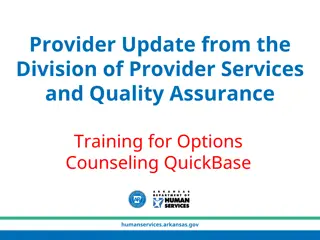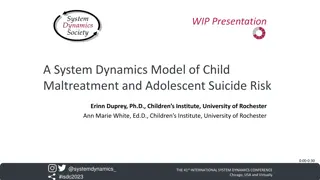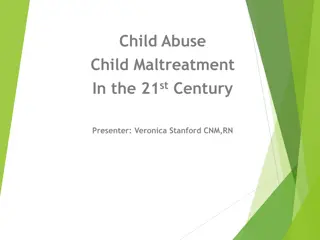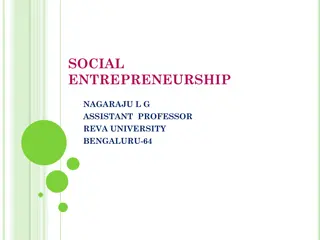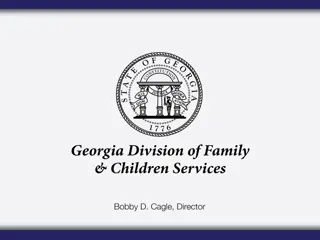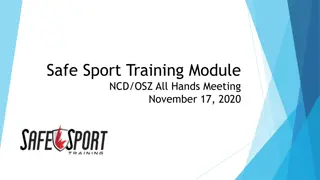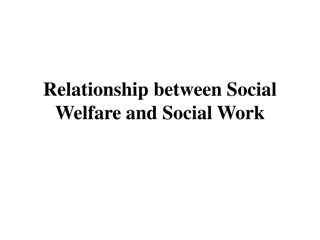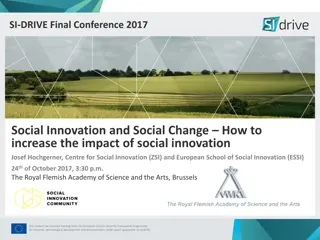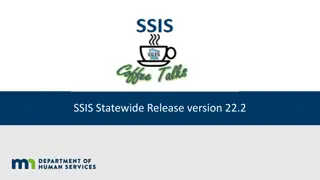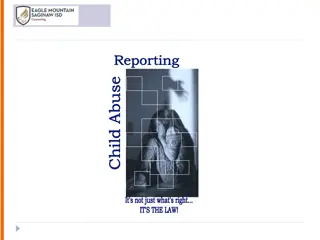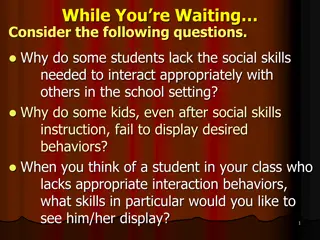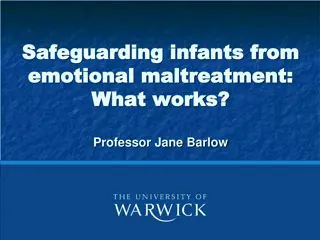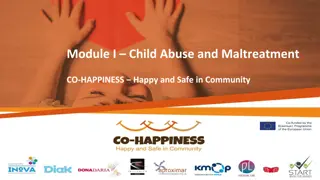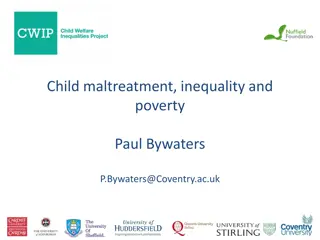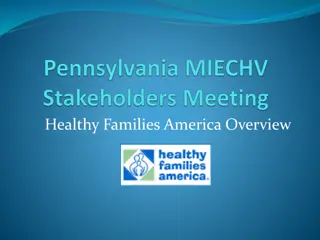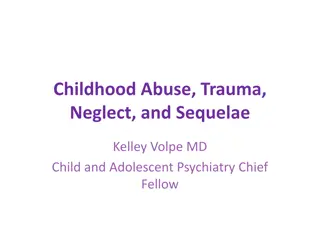Understanding the Impact of Maltreatment on Social Development
Maltreatment, including coercion and abuse of power in family environments, can lead to negative effects on children's social development. It results in lower levels of prosocial behavior, verbal communication, and undervaluing of children. Maltreated children may suffer from low self-esteem, negative affect, and peer relationship issues. There is an association between maltreatment and engaging in risky behaviors, such as substance abuse and antisocial behavior. The chronicity of maltreatment also contributes to higher levels of aggressive behavior and peer rejection. Specific types of abuse have distinct effects on self-esteem and peer relationships in children.
Download Presentation

Please find below an Image/Link to download the presentation.
The content on the website is provided AS IS for your information and personal use only. It may not be sold, licensed, or shared on other websites without obtaining consent from the author. Download presentation by click this link. If you encounter any issues during the download, it is possible that the publisher has removed the file from their server.
E N D
Presentation Transcript
Family environment and maltreatment Patterns seen across maltreatment types Family environment of coercion and abuse of power Lower levels of prosocial behavior and verbal communication Undervaluing of children Deviant affective displays Maternal intrusiveness and non-responsiveness
Overlap with risky behaviors Increased likelihood to engage in a greater array of risky behaviors Certain types of maltreatment associated with a greater number of sexual partners and heavier alcohol consumption Adult survivors likely to engage in substance abuse, criminal and antisocial behavior, and eating disorders
Social development and abuse Maltreated children often suffer from low self-esteem, self-blame, and negative affect toward self Abuse negatively impacts peer relationships particularly if its frequent and of long duration The longer maltreatment occurs, the greater the likelihood of peer rejection, perhaps because of tendency to engage in coercive, aggressive interactions with peers as result of abuse Though a strong friendship may attenuate this relationship Investigated with 107 children experiencing various types of abuse and 107 comparison children between 2nd and 7th grade Bolger et al 1998
Specificity of abuse effects Sexual abuse predicted low self-esteem but not peer relationship problems. Emotional maltreatment was related to difficulties in peer relationships but not to low self-esteem. For some groups of maltreated children, having a good friend was associated with improvement over time in self-esteem. Bolger et al., 1998
Chronically maltreated kids likely to be rejected by peers Maltreatment chronicity higher levels of aggressive behavior reported by peers, teachers, and children Aggressive behavior accounted for association of maltreatment and rejection. Withdrawn behavior associated with peer rejection but doesn t account for association of chronic maltreatment & rejection. Bolger & Patterson, 2001
Maltreatment Aggression Results hold for girls and boys Bolger & Patterson, 2001
Does abuse predict malfunction? Many children/ adolescents who suffer maltreatment become well-functioning adults Maltreatment can result in significant negative consequences that continue into adulthood Although many survivors function well in adulthood, others suffer serious psychological distress and disturbance
Possible buffers Maltreating parents may fail to produce opportunities for positive social interaction for their children Opportunities found elsewhere (i.e., other family members, friends, teachers, etc.) Maltreated children with best friends are more likely to experience increased self-esteem and self-concept than other maltreated children
Abused see more anger 8-11-year- olds Pollak & Tolley-Schell, 2003
At expense of ? Pollak & Tolley-Schell, 2003
Heart rate in response to Active anger: Large initial deceleration for abused & non-abused children Attentional orienting response Unresolved anger: Eventual recovery from initial deceleration (only group effect, p<.05) Resolution: Greaterrecovery for non-abused than abused children Time only for non- abused (bpm) Group, p<.05 Pollak, Vardi, Bechner, & Curtin (2005). Physically Abused
Impact on emotion recognition Influence of early adverse experience on children's selective attention to threat-related signals is a mechanism in the development of psychopathology. As children's experience varies, so will their interpretation of emotion expressions. Pollak & Tolley-Schell. Journal of Abnormal Psychology. 112(3), Aug 2003, 323-338.



